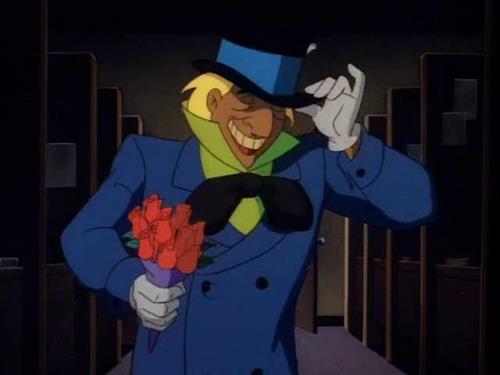Strengths and Weaknesses
The Mad Hatter, from Batman: The Animated Series, is a complex character with a unique set of strengths and weaknesses that influence his behavior and narrative arc.
Physically, the Mad Hatter, whose real name is Jervis Tetch, does not possess any notable physical prowess. He is not a fighter or particularly strong, which is a significant weakness when facing a physically imposing adversary like Batman. This limitation affects his ability to directly confront challenges, often necessitating reliance on his intellect and technological prowess to achieve his goals.
Intellectually, the Mad Hatter is exceptionally strong. He is a brilliant neuroscientist and inventor, specializing in mind control technology. His intelligence and creativity allow him to craft intricate devices that can manipulate others to do his bidding, making him a formidable opponent. This ability to control minds is both his greatest strength and a dangerous weapon, enabling him to orchestrate complex plans and manipulate situations to his advantage. However, this reliance on technology and manipulation can also be a vulnerability, as his plans often unravel when his devices are neutralized or when his targets break free from his control.
Emotionally, the Mad Hatter is deeply flawed. He is driven by obsession and an unrequited love for his colleague, Alice. This obsession often clouds his judgment and leads him to make irrational and impulsive decisions, jeopardizing his schemes and exposing his vulnerabilities. His emotional instability makes him unpredictable and can alienate potential allies, leading to isolation. This emotional turbulence is a double-edged sword; while it fuels his drive and creativity, it also hinders his success by making him susceptible to emotional manipulation and distraction.
The Mad Hatter's relationships are significantly affected by his strengths and weaknesses. His intellectual prowess and mind control technology create an imbalance of power in his interactions, often reducing others to mere pawns in his plans. However, his inability to form genuine connections due to his emotional instability and obsession results in strained or one-sided relationships. His progress in the story is often stunted by his emotional vulnerabilities, as his fixation on Alice and need for control drive him into conflict with Batman and others, ultimately leading to his downfall.
In conclusion, the Mad Hatter is a character whose formidable intellectual abilities are counterbalanced by his physical limitations and emotional vulnerabilities. His reliance on technology and manipulation, while making him a formidable adversary, also exposes him to significant risks. These strengths and weaknesses interplay to shape his decisions, relationships, and overall narrative within Batman: The Animated Series.